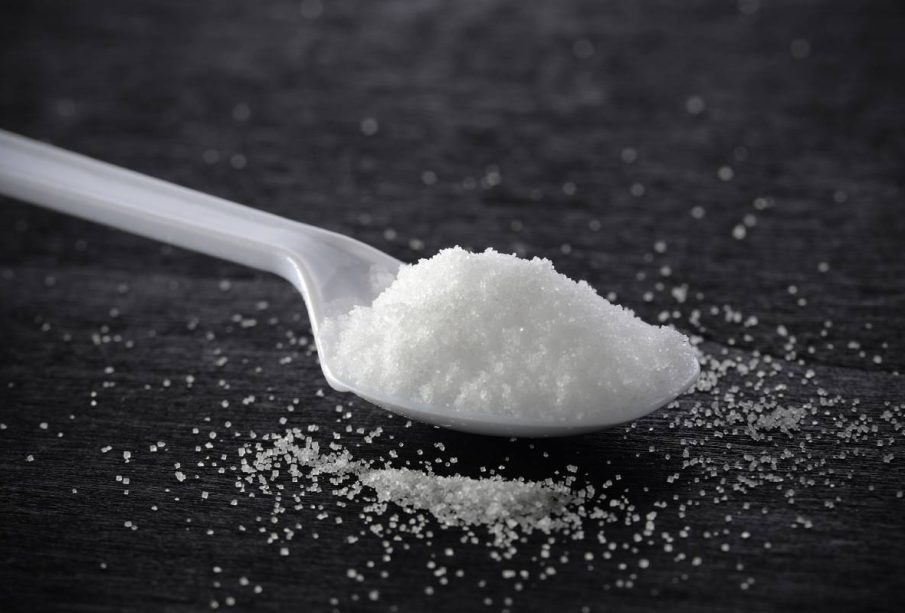Monosodium Glutamate (MSG), a widely used flavor enhancer, has been a controversial topic for years. Despite scientific research confirming its safety, many still view MSG with suspicion.
This negative perception comes from historical events, anecdotal reports, media influence, and cultural factors. In this article, we’ll unravel why some still consider MSG unhealthy, despite evidence to the contrary, which requires looking at its history, the power of anecdotal evidence, and the role of misinformation in shaping public opinion.
MSG stands for Monosodium Glutamate, which is a flavour enhancer commonly added to foods to improve their taste. It is the sodium salt of glutamic acid, a naturally occurring non-essential amino acid. MSG is widely used in the food industry, particularly in processed foods, snacks, soups, and restaurant dishes, especially in Asian cuisine.
Key Points About MSG
- Flavour Enhancement: MSG is known for its ability to enhance umami flavour, one of the five basic tastes, which is often described as savoury or meaty. This makes foods taste richer and more flavorful.
- Natural Occurrence: Glutamate, the active component of MSG, occurs naturally in many foods such as tomatoes, cheese, mushrooms, and soy sauce.
- Production: Commercial MSG is typically produced by fermenting starch, sugar beets, sugar cane, or molasses.
- Safety and Regulation: The Food and Drug Administration (FDA) considers MSG to be “generally recognized as safe” (GRAS). However, some people report sensitivity to MSG, experiencing symptoms like headaches, flushing, or sweating, often referred to as “Chinese Restaurant Syndrome.” Scientific studies have not consistently shown a link between MSG consumption and these symptoms, making it a topic of ongoing debate.
- Usage in Cooking: MSG is often used in small amounts, similar to how salt is used, to enhance the overall flavour profile of dishes. It is particularly common in Asian cooking, processed foods, canned soups, and snack foods.
MSG in Diet
Despite the controversies and anecdotal reports of adverse reactions, MSG remains a widely used ingredient due to its potent flavour-enhancing properties. For individuals who believe they are sensitive to MSG, it’s recommended to read food labels carefully and choose products labelled “No MSG” or “MSG-free.”

Is MSG actually bad for our health?
The safety of MSG (Monosodium Glutamate) has been extensively studied, and the general consensus among health authorities is that MSG is safe for most people when consumed in normal amounts. Here are some key points to consider regarding MSG and health:
Scientific Consensus
- Regulatory Approval:
- The U.S. Food and Drug Administration (FDA) considers MSG to be “generally recognized as safe” (GRAS).
- The World Health Organization (WHO) and the Food and Agriculture Organization (FAO) also classify MSG as safe.
- The European Food Safety Authority (EFSA) has also concluded that MSG is safe for consumption.
- Scientific Studies:
- Numerous studies have investigated the potential adverse effects of MSG, and most have found no consistent evidence linking MSG to serious health issues.
- Some people report symptoms like headaches, flushing, sweating, and chest pain after consuming large amounts of MSG. However, controlled studies have not consistently replicated these effects, suggesting that MSG may not be the cause or that only a small subset of the population is affected.
Anecdotal Reports and “Chinese Restaurant Syndrome”
- The term “Chinese Restaurant Syndrome” emerged in the late 1960s when people reported experiencing symptoms like headaches and palpitations after eating at Chinese restaurants, where MSG was commonly used. While this led to widespread concern, scientific evidence supporting these claims is weak.
- Sensitivity to MSG: Some individuals may be sensitive to MSG and experience mild symptoms after consuming it. This sensitivity is not common and tends to be dose-dependent. These symptoms are generally not severe and subside on their own.
MSG in Context
- Natural Glutamate: Glutamate, the active component in MSG, is naturally present in many foods, including tomatoes, cheese, and mushrooms. The body processes glutamate from MSG and naturally occurring glutamate in the same way.
- Balanced Diet: When consumed as part of a balanced diet, MSG is unlikely to pose a health risk. Moderation is key, as with any food additive.
For the vast majority of people, MSG is not harmful when consumed in normal dietary amounts. Regulatory agencies worldwide have concluded that MSG is safe based on extensive scientific research. However, if you suspect you have sensitivity to MSG, it might be prudent to limit your intake and monitor your symptoms. As always, maintaining a balanced diet and being mindful of food choices contributes to overall health and well-being.

If its safe to consume, why do people still think MSG is unhealthy?
The perception that MSG (Monosodium Glutamate) is unhealthy persists due to a combination of historical events, anecdotal reports, cultural factors, and media influence. Here are some of the main reasons why people still believe MSG is harmful:
Historical Context
“Chinese Restaurant Syndrome”
-
- In 1968, Dr. Robert Ho Man Kwok wrote a letter to the New England Journal of Medicine describing symptoms like headaches and palpitations after eating at Chinese restaurants, attributing these to MSG. This sparked widespread concern and the coining of the term “Chinese Restaurant Syndrome.”
- Despite subsequent studies failing to consistently reproduce these symptoms, the initial reports had a lasting impact on public perception.
Anecdotal Evidence
Self-Reported Symptoms
-
- Some people report adverse reactions after consuming foods containing MSG, such as headaches, flushing, or nausea. These anecdotal reports have contributed to the belief that MSG is harmful, even though scientific studies have not confirmed a consistent cause-and-effect relationship.
- Human variability means that some individuals might be sensitive to MSG, leading to a subset of the population having negative experiences.
Media and Misinformation
Media Coverage
-
- Sensational media stories and misinformation have perpetuated the myth that MSG is dangerous. Negative headlines tend to attract more attention, leading to widespread misconceptions.
- Misinformation and fearmongering about food additives, in general, contribute to the ongoing suspicion of MSG.
Lack of Awareness of Scientific Evidence
-
- Many people are unaware of the extensive scientific research and regulatory reviews that have determined MSG to be safe for most people.
- The persistence of outdated information can overshadow more recent and accurate findings.
Cultural and Racial Factors
Cultural Bias
-
- The association of MSG with Chinese cuisine and the term “Chinese Restaurant Syndrome” have racial and cultural undertones that have unfairly stigmatized both MSG and Asian cuisine.
- This bias has contributed to the demonization of MSG more than other food additives.
Regulatory Actions and Food Labeling
Labelling and Marketing
-
- Some food manufacturers label products as “No MSG” or “MSG-free” to cater to consumer fears, reinforcing the idea that MSG is something to be avoided.
- These marketing practices can perpetuate the belief that MSG is harmful, even though the evidence does not support this.
Psychological Factors
Placebo and Nocebo Effects
-
- The placebo effect (believing something will help) and the nocebo effect (believing something will harm) can influence how people perceive their reactions to MSG.
- If people believe MSG will make them feel unwell, they may be more likely to experience negative symptoms after consuming it, even if there is no physiological cause.
While scientific evidence supports the safety of MSG for the general population, historical events, anecdotal experiences, media influence, and cultural biases have all contributed to the enduring belief that MSG is unhealthy. Increased public education and awareness of the scientific findings may help to mitigate these misconceptions over time.
In conclusion
The enduring belief that MSG is harmful is a multifaceted issue rooted in historical context, anecdotal experiences, and cultural biases, amplified by media and misinformation. Despite the overwhelming scientific consensus affirming its safety, MSG’s reputation suffers from lingering myths and misconceptions.
Addressing these requires continued public education and transparent communication about the actual risks and benefits associated with MSG. By dispelling myths and promoting evidence-based information, we can help shift the narrative towards a more accurate understanding of this common food additive.
















